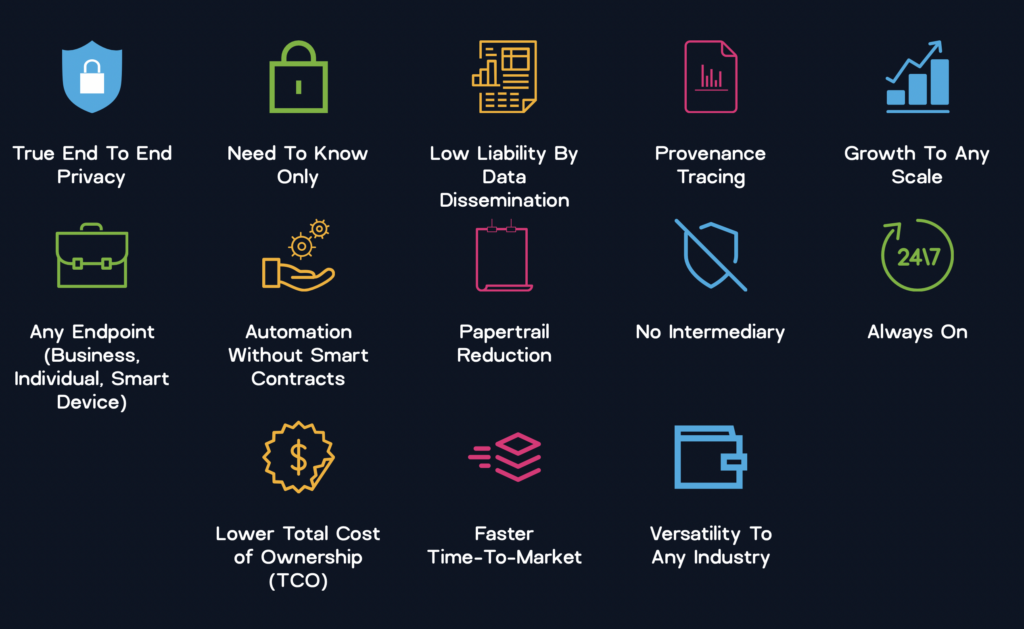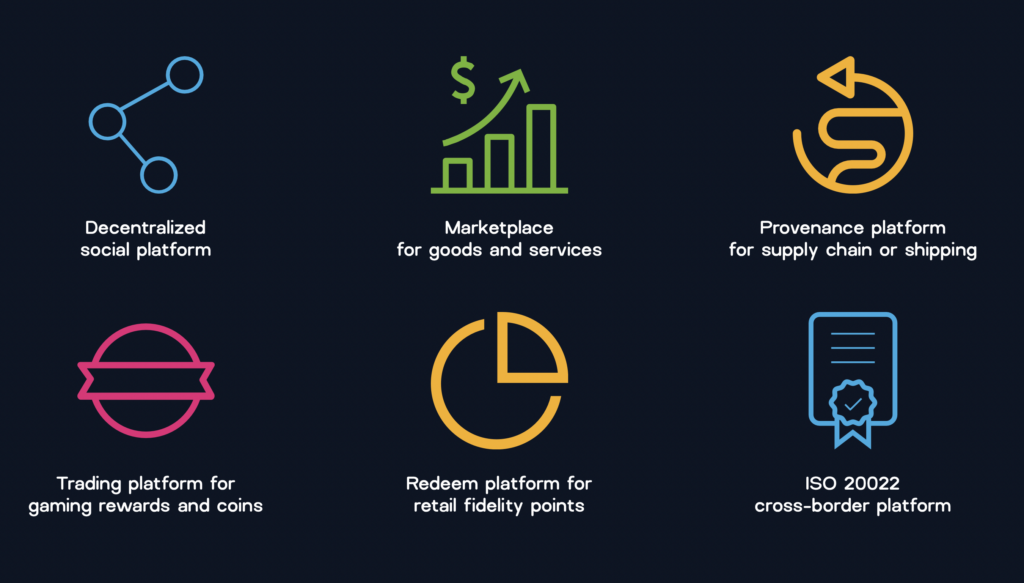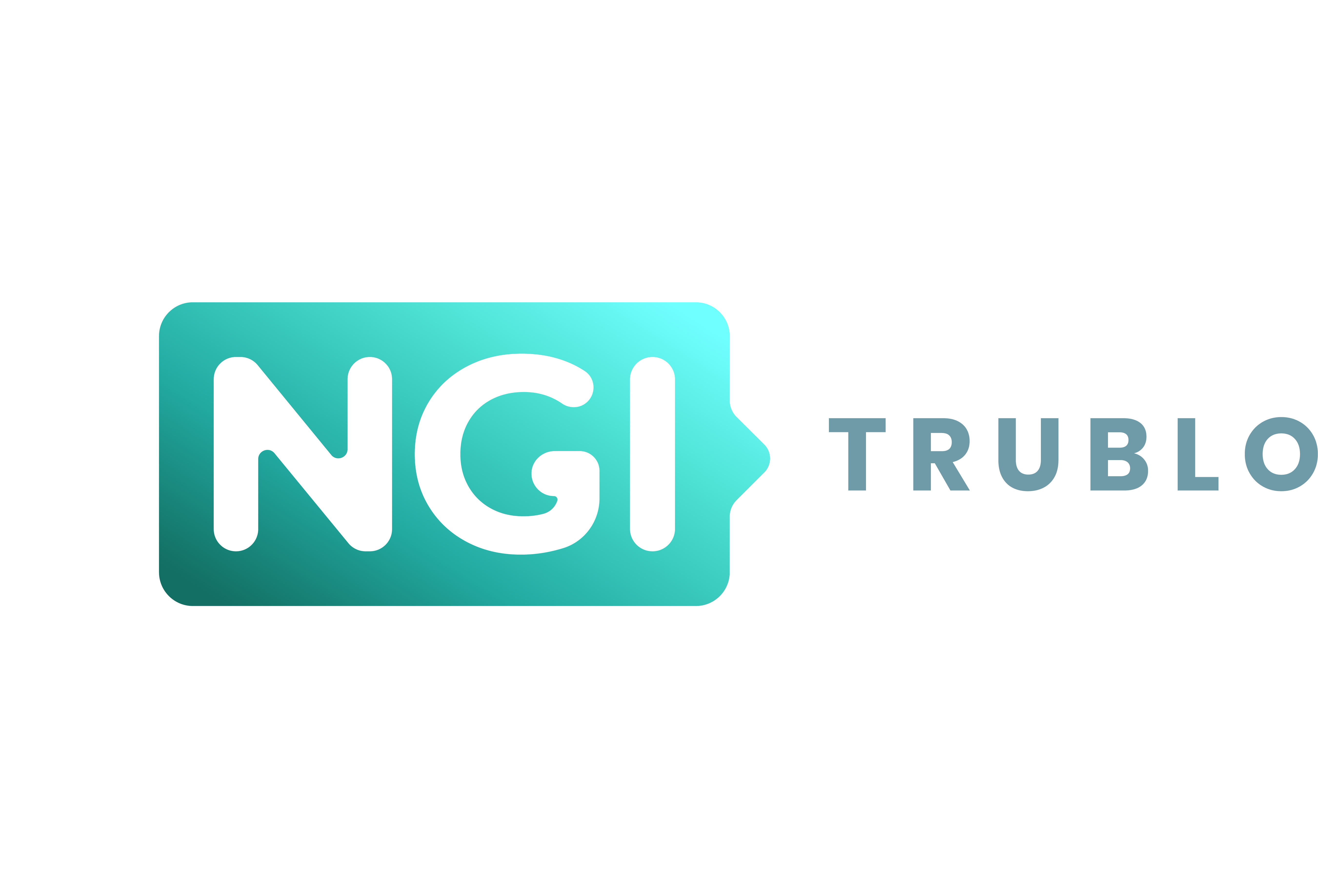FileChain aims to extend existing, often complex document workflows with simple yet secure sharing options, similar to a decentralised blockchain platform. The underlying software is based on Java, making it more straightforward for many companies to adopt and customise their existing systems.
Currently, FileChain is a start-up company with offices in Sweden and the UK. Here is an interview with the founder and CEO.
INTERVIEW
Mirko Lorenz: You are the founder and CEO of FileChain. Can you briefly say what brought you there?
Sylvain Vittecoq: The original idea of why we created FileChain came from a day in 2016 when I realised that I had to provide input for my preference for a window or aisle seat on every airline website every time I would book a flight ticket. I thought there must be a way for me just to grant some airlines access to this one piece of information about my preference. This is how FileChain started. We are using distributed ledger technology to solve this kind of problem. My example was B2C. Decentralisation and delivery of such individual services are probably some years away. But for B2B markets, we are here with FileChain. Our software is a new way to provide blockchain distributed ledger services for B2B transactions.
About
Sylvain Vittecoq is an entrepreneur and IoT expert. Originally from France, he has been in technology and management roles since 1996. Vittecoq lives in Sweden. LinkedIn

Photo: Sylvain Vittecoq, via FileChain https://www.filechain.com
Question: From your point of view, decentralised exchange of information blockchain functionality could help to free many workflows from having to file the same data again and again and again because we can access such pieces with the permission of the owner?
Sylvain Vittecoq: Everything is highly centralised. In any company, you will have ERP systems based on databases found in every single company and public administration. It is then the job of all integrators to enable these systems to talk to other systems with security layers to cross. Whenever there is an audit, there is a need to decide who can be trusted. My thinking is: By now, we can use a technology called the blockchain, which you can place in the middle. It is owned by no one but can be used by all parties involved to achieve a common goal. This approach puts the current logic upside down, and we can get there with a piece of technology placed between many parties with common interests. This opportunity is why I believe that this technology is not just a short-lived trend but that blockchain, in general, will succeed.
At what development stages is FileChain as a company? Is it a start-up? How is it funded through revenue or venture capital? How many people are working for you?
Sylvain Vittecoq: We are a start-up. We are less than ten people, which is still a small team. We got bootstrapped. We used our funding for development so far in stealth mode. We got a small investment in December 2020 from a UK seed investor. We are just running and financing our activities based on customers and incoming projects. We are still a relatively small company, with a substantial technical stack, which is now ready for production. We are just starting commercialisation.
What is your pitch to potential companies? Why should a company use FileChain?
Sylvain Vittecoq: We have a different vision for ledger technology. We don’t believe in public blockchains. Instead, we believe in federation or private blockchains which would be run and managed by a more comprehensive number of parties, and it might be a group of companies focused on supply chains for instance.
“We don’t believe in one ledger in charge of everything”.
Secondly, we don’t believe in one ledger in charge of everything, which does not make sense. Therefore, our ledger setup is different; we focus on the enterprise space. Thirdly, we want our blockchain ledger to be highly more economical than what is available today and way more performant. What needs to be understood is what it costs you to use specific software every day when everything goes well – and would I need to pay when something things go terrible. This is a fundamental question for every decision-maker.
Looking at specific blockchain tokens with gas fees, we think that many current blockchain use cases are based on speculation. It is almost impossible to predict what it will cost you down the road. You know, what will be your cost down the road. FileChain is none of that. We automate, but not through smart contracts because they are expensive and very slow to run. We do our automation, but differently. If anything goes wrong when using new blockchain platforms, no one can provide actual liability. FileChain is different here: We want to make sure everyone knows from the start who would be blamed for what and who would have to pay what. Our focus is not on smart contract utility tokens but on a decentralised ledger that can reliably transport documents between parties, the right legal professionals. And I mean regular contracts, not smart contracts, actual, regular paper-based contracts. For example, we believe that it is possible to achieve a significant change in how to handle paper and permissions in the global shipping trade. There is an immense potential to save money and drastically reduce current operational costs. Implementing news ledger technology could generate new revenue streams because the new features can disrupt the current market and create a new market.
 Visual: Benefits Source: FileChain (Screenshot Website)
Visual: Benefits Source: FileChain (Screenshot Website)
“We don’t forget the old world. We aim to integrate ERP solutions with blockchain.”
So, in other words: FileChain is a modern approach to cloud storage that uses some aspects of a blockchain. So FileChain creates a bridge between the old world and the business world of the future. Is that correct?
Sylvain Vittecoq: Yes. We don’t forget the old world. We aim to integrate ERP solutions with blockchain. We simply don’t forget large companies that have invested 100.000s lines of code. Our technology is a true full-stack ledger from layer 1. So, we have no dependency on any other ledger. This is not a fork of the code from Ethereum, Bitcoin, or any other token platform. Instead, this is 100% FileChain code for the nodes. These nodes have the task to verify the signatures of all the transactions. Those nodes would be one piece of software. We also have an agent, which is the other piece of the software we provide, for people to send or receive millions of transactions. Our goal is to make this much cheaper and more performant than today.
Could you describe a typical company from a specific industry that is a FileChain client?
Sylvain Vittecoq: We are getting traction because we not only provide file and data exchange. On top of that, we can implement transactions to transfer value from A to B. We offer a complete toolkit to underpin the needed paperwork for many types of transactions. Shipping is a good example. You may want to have many companies being able to onboard and identify themselves. This is what they can do with our ledgers. Once they have a public-private key pair, they can authenticate themselves and provide all the required documentation to identify everyone on that ledger fully. Even the shipping containers could authenticate themselves with a serial number and some keys. This is the perspective for the future: A shipping container could send a document or form in JSON XML. Someone from a shipping company could send a Word or a PDF document to another entity present on the ledger. That is the focus of FileChain: To streamline paperwork for all types of transactions – before we get into a transfer of value, which – we believe – is at most five per cent of all the transactions needed for many types of business.
Logistics and shipping are the focus of FileChain for now?
Sylvain Vittecoq: Many of our current use cases are in shipping because there is a lot of paperwork. We are supporting supply chains because you must trace everything. But such a system helps track any valuable goods or many companies. Another use case is when you need to follow valuable cars, watches, or other luxury goods such as art. All such workflows will require packaging the correct information and sharing it with specific people or companies. And never share anything with anyone else. That is another crucial element of FileChain technology, as we offer privacy by design.
“I can decide to share it, in that second, that hour, within days or even months, to share the same content with one or 5000 other recipients instantly”
What you offer is a modern way to exchange information, but with a specific and innovative approach how to share sensible parts such as a person’s name, address, bank account, and so on?
Sylvain Vittecoq: Let’s say I want to share a document with you using FileChain. I can do this using drag-and-drop from my desktop. Encryption is added automatically. When the file leaves my computer, it is now embedded as a FileChain transaction as in-chain storage. Once the transaction gets into the ledger, I’m still the only one who can decrypt that content. I can decide to share it, in that second, that hour, within days or even months, to share the same content with one or 5000 other recipients instantly. I am not going to clone that document again on the ledger. Instead, I will give everyone access to that same content sitting on the ledger. I have complete control over who can access this information. I can even reverse access.
What is the technology you use for FileChain? Is it a specific blockchain protocol?
Sylvain Vittecoq: FileChain is a full-stack offering, and our reference implementation is in Java, which means we have no dependency on anything else. So, no exotic language. And, going back to my initial point, we don’t forget the work that has been done before because older systems are already running and existing today. This is the reason why our reference implementation is in Java. We have a full-stack offering from Layer 1 up to the SDK, including rest APIs for anyone to implement the business logic into other applications. This one ledger can run multiple applications with multiple use cases.
Is it that many clients want to use the benefits of the blockchain approach but have to be able to understand the language in use?
Sylvain Vittecoq: That’s precisely why we do not use a language like Solidity, which is used for many smart contracts but is to some extent prone to errors. From a liability standpoint, this is a no-go. Because in many business settings, you cannot guarantee that the smart contract will execute as intended. So that’s why we don’t have smart contracts for FileChain. Our focus is different: We want to have an application that many engineers can work with efficiently, which they can connect with existing ERP systems quickly. Through such projects, blockchain can achieve mainstream adoption, in our view. To get there, we need a low barrier of entry for software engineers. This is the same for the hosting and the management of those infrastructures. With FileChain, we have a straightforward set-up for the network and to join additional nodes. We don’t want people to spend a lot of time building many tools. That is pointless. What you want is just to get done with your actual business so that you can save money or make money. It is precisely what we try to achieve every day.

Examples of implementations using FileChain. Source: FileChain
Would you be open to collaborative projects? For example, could creators of other innovative distributed concepts work together with you? Or would that be complex?
Sylvain Vittecoq: Partnerships are, at the same time, simple and complicated. Simple in the sense that our core technology is Java. We should exclude the full integration of an ERP system because such work is often complicated. A marketplace, for example, can be created in some days or maybe a few weeks by just one Java engineer. So that is the yes path to the answer. Indeed, if we want to participate in an App in creating a particular ecosystem, we can very, very quickly do that. Our technology allows for very short development cycles, as we are already starting from something substantial. The no part is that we cannot do it for free. We would have to look carefully at the possible benefit down the road. We are already partnering with many large system integrators. We like to work in sandboxes to make something with others, and we welcome partners.
What are your plans for the future of FileChain?
Sylvain Vittecoq: We are 100% “Made in Europe”. And we want to remain with this DNA. I am increasingly meeting people from France, Germany, and other parts of Europe who share a common understanding that we need to create momentum in that direction to not end up with solutions and companies from the US running every blockchain-oriented project in Europe. That is one part of the reason we want to be an example.
We are 100% “Made in Europe”.
We aim to maintain an excellent knowledge of all the European regulations. So that all our customers, wherever they are on the planet, FileChain ledgers will match all the regulations as applicable in Europe. This is basically what we try to drive forward, who we work with, and how we work. We have always been told our technology is very different, and our point of view is very different. Based on this approach, we are getting a lot of traction.
Website: FileChain
Photo by David Bruno Silva on Unsplash


0 Comments